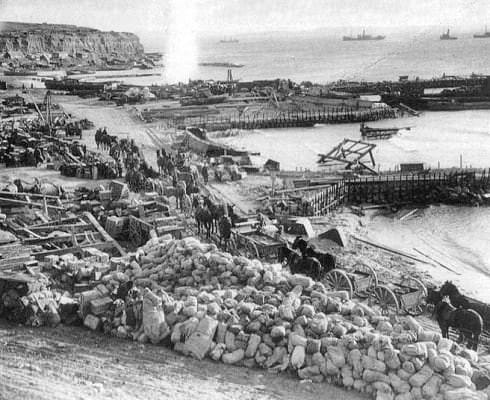January 2016

Last days at Gallipoli
A century ago in January 1916 Gallipoli was finally evacuated by the Allied Forces.
In my novel, Glory, I focus on this last phase of the exodus from Helles. Still holding the trenches were thousands of British soldiers some of whom, like my young private, Fred Chaffey, had been there from the first landings in April. If any-one were to make a new film about the Gallipoli campaign, I would recommend climaxing with this extraordinarily dramatic finale. When withdrawal was first considered, the war cabinet was advised by its commanders that they would lose 50% of their men.
The French, Australia, New Zealanders and some of the British had left their positions at the end of the year before. They had got away, seemingly miraculously, without the enemy of Turks and some German officers being aware of their departure. Elaborate charades – logs drawn about to replicate gun movements, soldiers pretending to full strength and normal routines, self-firing guns and other stratagems – were apparently enough to disguise their purpose.
But would the enemy be taken in by the same trickery for the third time? Would thousands of soldiers creeping away even if with their boots bound in sacking, cigarettes extinguished and talking strictly forbidden, really go unnoticed yet again? Not much fun to be patrolling a trench alone with no friend in earshot and the enemy only meter away at full strength.
Although I knew the sequence of events, I found myself sharing Fred ‘s nervousness, particularly after I realised the sappers had arranged a huge bonfire of explosives for 3am and at 2.30am a general ordered a small party of soldiers to retrace their steps and collect a suit-case he’d left behind. Then there was the worsening weather so that the boats sent to pick up the soldiers, could hardly put in to shore. As the winds raged, smashing landing points, the men picked their way past crosses marking the graves of their comrades and rows of dead mules for whom there was no place on the boats. Very few looked behind them.
